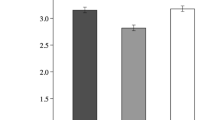Abstract
Democratic politicians face pressures unknown to the prerogative rulers of the early modern period when toleration was first formulated as a political ideal. These pressures are less often expressed as demands by groups or individuals for the permission of practices they dislike than for their restraint or outright prohibition; tolerant dispositions are less politically clamorous. The executive structure of toleration as a virtue, together with the ‘fact of reasonable pluralism’, make conflicts over toleration peculiarly intractable. Political conflicts are apt to take the form of mutual allegations ofintolerance; indeed, the problem of ‘tolerating the intolerant’, far from being a marginal case, is central to the theory and practice of toleration. Toleration thus exemplifies a category mistake committed in much contemporary political theory, particularly in its contractualist versions: the threshold of the political lies precisely where rational agreement proves impossible. The main prospects for democratic toleration are thus pre-emptive. The main way in which this can happen is by cultivating executive dispositions: in other words, encouraging people to detach themselves from strong evaluative commitments, so that toleration does not become politically contentious to start with. But this involves losses as well as gains. The gains in civil harmony and peace are obvious. The cost for tolerant political actors is alienation from what they have good reason to value.
Similar content being viewed by others
Author information
Authors and Affiliations
Rights and permissions
About this article
Cite this article
Newey, G. Is Democratic Toleration a Rubber Duck?. Res Publica 7, 315–336 (2001). https://doi.org/10.1023/A:1012221130057
Issue Date:
DOI: https://doi.org/10.1023/A:1012221130057



